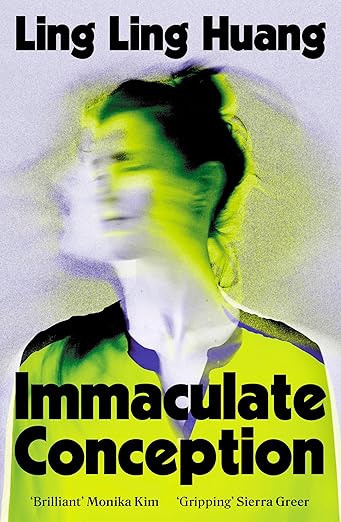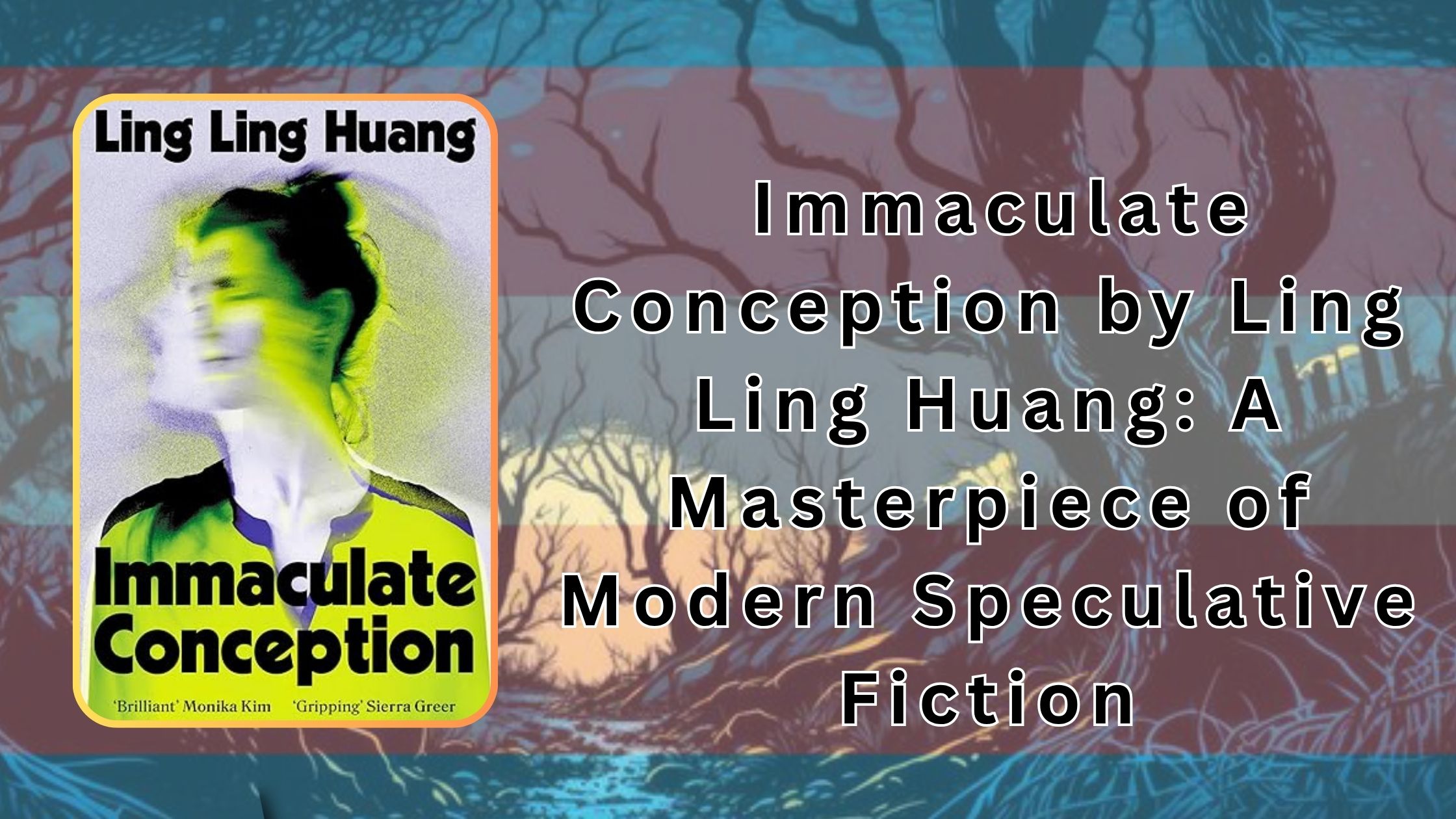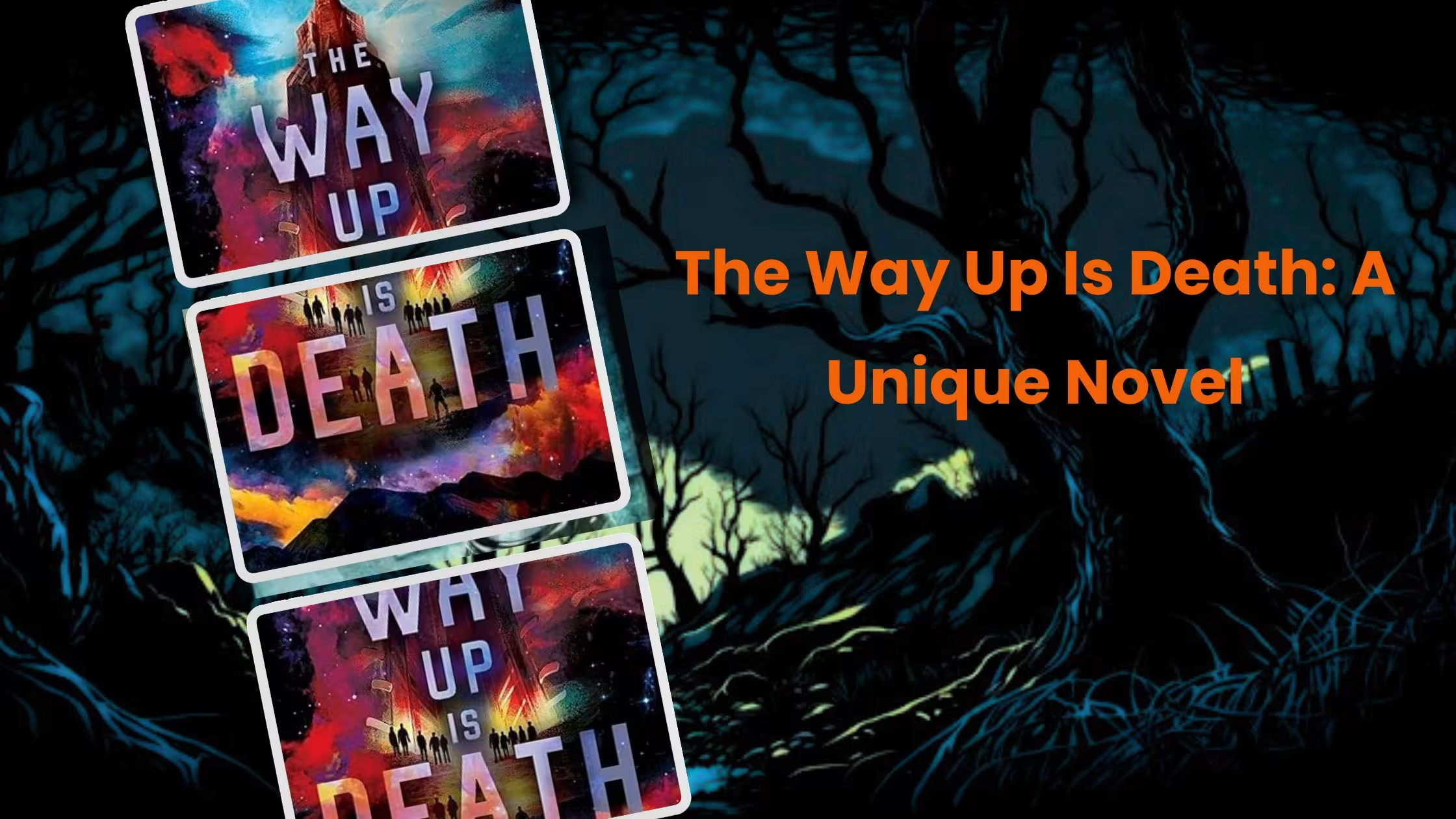Immaculate Conception by Ling Ling Huang: A Masterpiece of Modern Speculative Fiction

Ling Ling Huang’s Immaculate Conception is not just a novel, it is an experience. A searing, hypnotic plunge into the collision of art, identity, and technological ambition, this sophomore release cements Huang’s status as one of the most daring and visionary voices in contemporary literature. Following her celebrated debut, Natural Beauty, Huang delivers a story that is both a razor-sharp critique of modern capitalism and a deeply human exploration of the lengths we go to in pursuit of connection.
At its core, Immaculate Conception is a story about obsession. Enka, a struggling artist overshadowed by her prodigiously talented friend Mathilde, makes a Faustian bargain to close the gap between their abilities. When Enka marries into a billionaire family funding experimental “empathy technology,” she gains access to a procedure that allows one person to temporarily inhabit another’s consciousness, a tool marketed as a way to heal trauma by sharing its burden. What begins as Enka’s desperate attempt to understand Mathilde’s genius spirals into a nightmarish fusion of identities, where envy, love, and artistic ambition blur into something monstrous.
Huang’s narrative is as intricate as it is propulsive. The novel’s speculative framework, a near-future where art is commodified, emotional labour is monetised, and technology promises transcendence, feels chillingly plausible. The empathy device, initially framed as a therapeutic breakthrough, becomes a metaphor for the exploitation inherent in modern creativity. As Enka and Mathilde’s minds intertwine, Huang interrogates the ethics of ownership: Who has the right to another’s pain? Can art born from borrowed suffering ever be authentic? These questions reverberate long after the final page.
Enka and Mathilde are two of the most compelling, morally complex characters in recent fiction. Enka’s desperation is palpable, her actions increasingly reprehensible yet undeniably relatable. Huang refuses to villainise her; instead, she paints a portrait of a woman corroded by insecurity in a world that equates artistic worth with marketability. Enka’s marriage to tech heir Simon, a man whose family profits from packaging empathy as a product, adds layers of irony to her quest for authenticity. Their relationship, transactional yet strangely tender, underscores the novel’s central tension: Can connection exist without exploitation?
Mathilde, meanwhile, is a revelation. A painter whose work is both revered and fetishised, she is portrayed not as a muse or martyr but as a fully realised artist grappling with the weight of her own trauma. Her childhood, marked by loss and abuse, becomes fodder for critics and collectors who romanticise her pain as a prerequisite for genius. Huang’s portrayal of Mathilde’s vulnerability is unflinching, particularly in scenes where her body and mind are treated as public property. In one chilling passage, a gallery owner praises her latest exhibit, which features self-portraits of her bleeding wrists: “Your pain is a gift,” he says. “Don’t waste it on privacy.”
Their codependent relationship evolves with the slow-burn intensity of a thriller. Moments of genuine tenderness, shared laughter over cheap wine, late-night debates about Rothko, make their eventual unravelling all the more devastating. By the novel’s climax, the line between collaborator and parasite dissolves entirely, leaving readers to wonder whether any form of artistic partnership can escape the consumption trap.
Huang’s writing is nothing short of virtuosic. She shifts seamlessly between lyrical, almost hallucinogenic descriptions of art (“a canvas that bled gold and screamed in vermilion”) and stark, clinical prose that mirrors the dehumanising tech at the story’s core. Her imagery is visceral, even grotesque, yet undeniably poetic. In one standout scene, Enka undergoes the empathy procedure: “It felt like being skinned alive, then dipped in someone else’s salt. When I opened my eyes, I could taste her loneliness—metallic, like a battery on the tongue.”
The pacing is masterful. Huang layers quiet, introspective moments with explosive reveals, ensuring the novel’s momentum never flags. A subplot involving a rogue collective of artists who use extreme body modification as protest (think: implanting neon circuitry beneath their skin) adds texture to the worldbuilding, while scenes at “empathy galas”—where the wealthy trial the technology as a party trick, offer biting satire of Silicon Valley.
What makes Immaculate Conception so profoundly unsettling is its resonance with our current moment. Huang’s vision of a society addicted to self-optimisation, where trauma is monetised, AI generates “authentic” art, and human connection is mediated by algorithms, feels less like speculation and more like inevitability. The novel’s tech moguls, with their empty mantras about “disruption” and “empathy-as-a-service,” echo real-world rhetoric that reduces human experiences to data points.
Yet for all its cynicism, the novel is not without hope. In Mathilde’s defiance, her refusal to let her pain be commodified, we see a glimmer of resistance. A late-act twist involving her most controversial artwork becomes a rallying cry for autonomy, a reminder that creativity, at its best, is an act of reclamation.
Immaculate Conception is a rare achievement: a novel that is as intellectually rigorous as it is emotionally devastating. Huang’s background as a musician (she’s a classically trained violinist) shines in her attention to rhythm and structure, while her fearlessness in confronting taboo subjects, sexual violence, self-harm, the erasure of artistic identity, elevates the story beyond mere entertainment.
Ling Ling Huang has crafted a modern parable that transcends genre. Immaculate Conception a horror story with the soul of a philosophical commentary. It is a warning about the dangers of conflating technology with progress, and a celebration of art’s capacity to redeem even the most broken parts of ourselves.
Immaculate Conception by Ling Ling Huang
A portrait of companionship – achingly tender and twisted – that captures the tenuous line between love and possession.
Mathilde is a dizzyingly talented, tortured artist whose star is on the rise – and Enka, struggling to create art that feels original, is immediately drawn to her.
The two strike up a close friendship, but when Mathilde’s fame reaches new heights, her work becoming more and more extreme, Enka becomes desperate to keep her close – no matter the cost.
Enka falls in love with and marries a billionaire whose family’s company is funding new technology purported to enhance empathy, and which could allow someone else to inhabit Mathilde’s mind and absorb the trauma infecting her brain.
But as their codependency deepens, the boundaries between Mathilde and Enka begin to blur, setting in motion a haunting series of events that will forever change their lives.
Blisteringly smart, thought-provoking, and eerily timely, Immaculate Conception deftly navigates big questions of art, technology, authorship, and what makes us human. Its answers will haunt you long after you turn the final page.
Praise for Immaculate Conception
‘Huang’s brilliant, imaginative, and ambitious novel gripped me from beginning to end. I loved every moment of it’ Monika Kim, author of The Eyes Are the Best Part
‘Huang, the real-life genius holding the palette, deftly weaves competition, longing, fantastical technology, and gobsmacking imagery into an unforgettable tale… utterly gripping: an immersive, transformative read’ Sierra Greer, author of Annie Bot
‘Immaculate Conception radiates with imagination. A thrilling tale about art’s awesome power, about profound friendship, and how both destroy as well as build. Surprising at every turn, Ling Ling Huang has created an unforgettable novel’ Gerardo Sámano Córdova, author of Monstrillo
‘Huang’s latest is a hit’ Elle
Further Reading
For fans of horror literature, The Ginger Nuts of Horror website is an essential destination that should not be overlooked. This platform offers a dedicated horror book review section that caters specifically to the needs of horror enthusiasts. With its unique blend of insightful critiques, expert recommendations, and a vibrant community, the site serves as a treasure trove for anyone seeking their next spine-chilling read.
One of the standout features of the horror book review section is its diversity. Readers can discover everything from classic horror novels to contemporary indie gems, ensuring that there’s something for everyone. Each review is thoughtfully penned, providing not just a summary but also a deep dive into the themes, writing style, and overall atmosphere of the works. This allows readers to gauge whether a particular book aligns with their preferences.
For those passionate about horror literature, checking out this section is a must!









